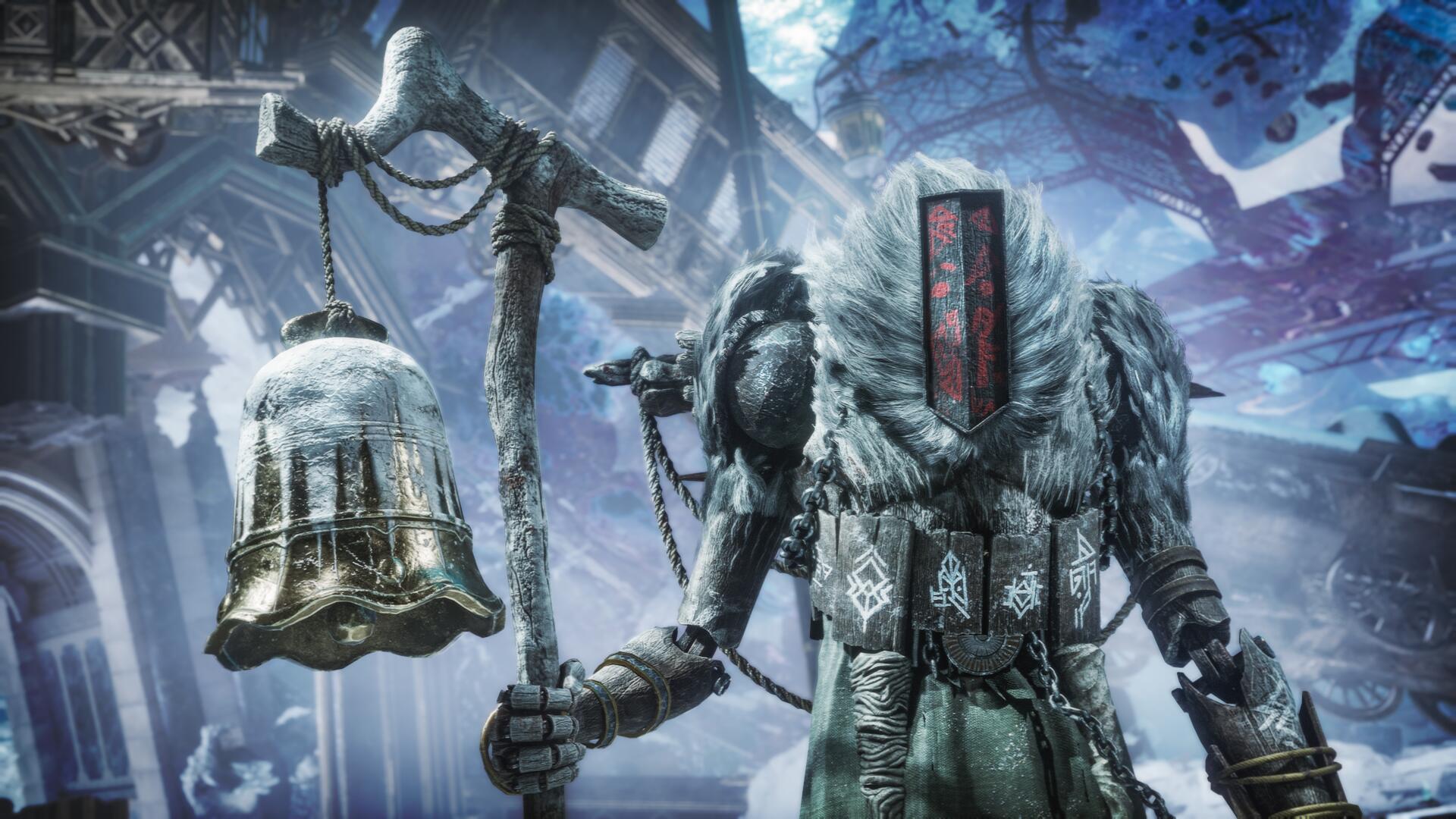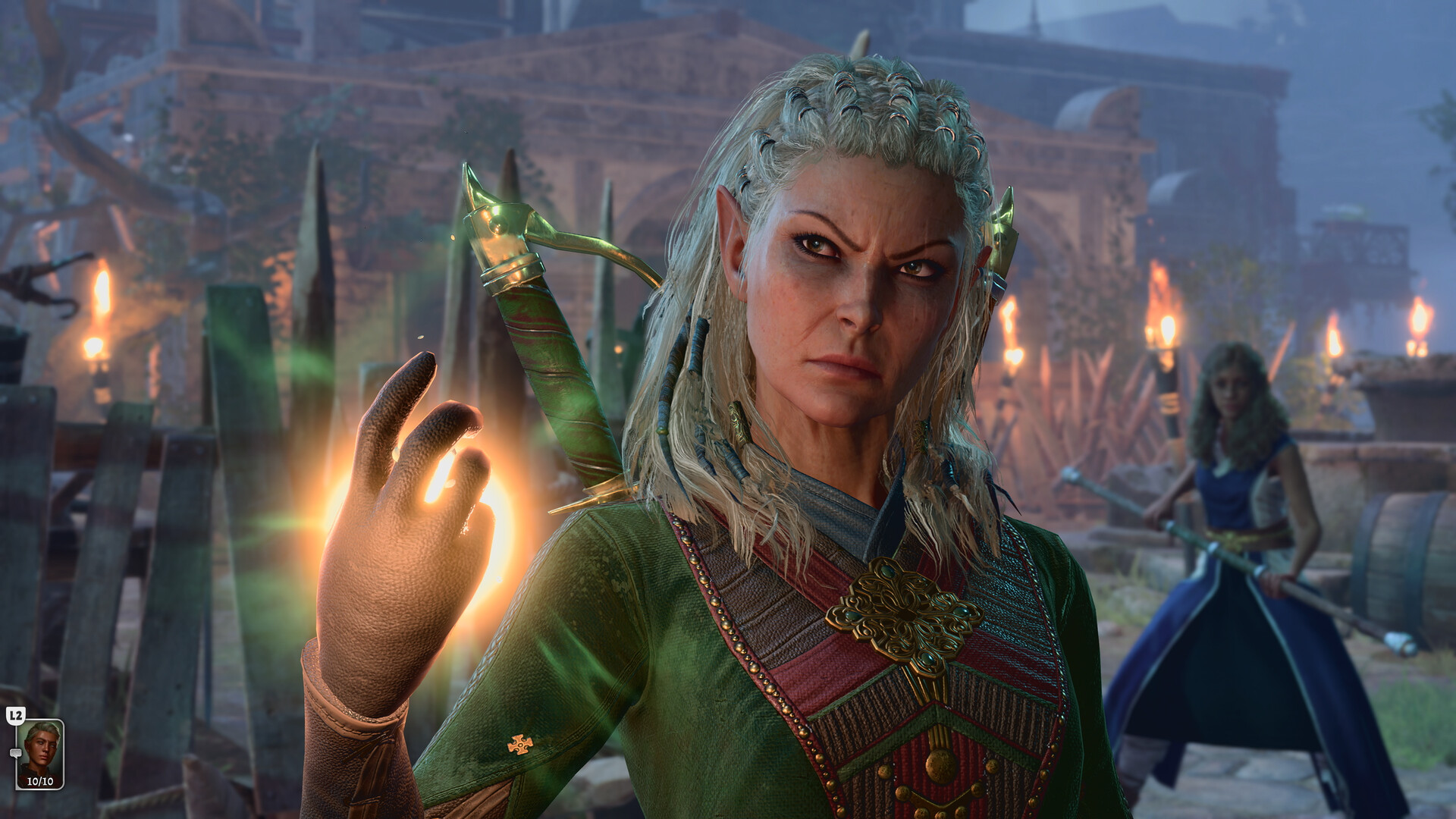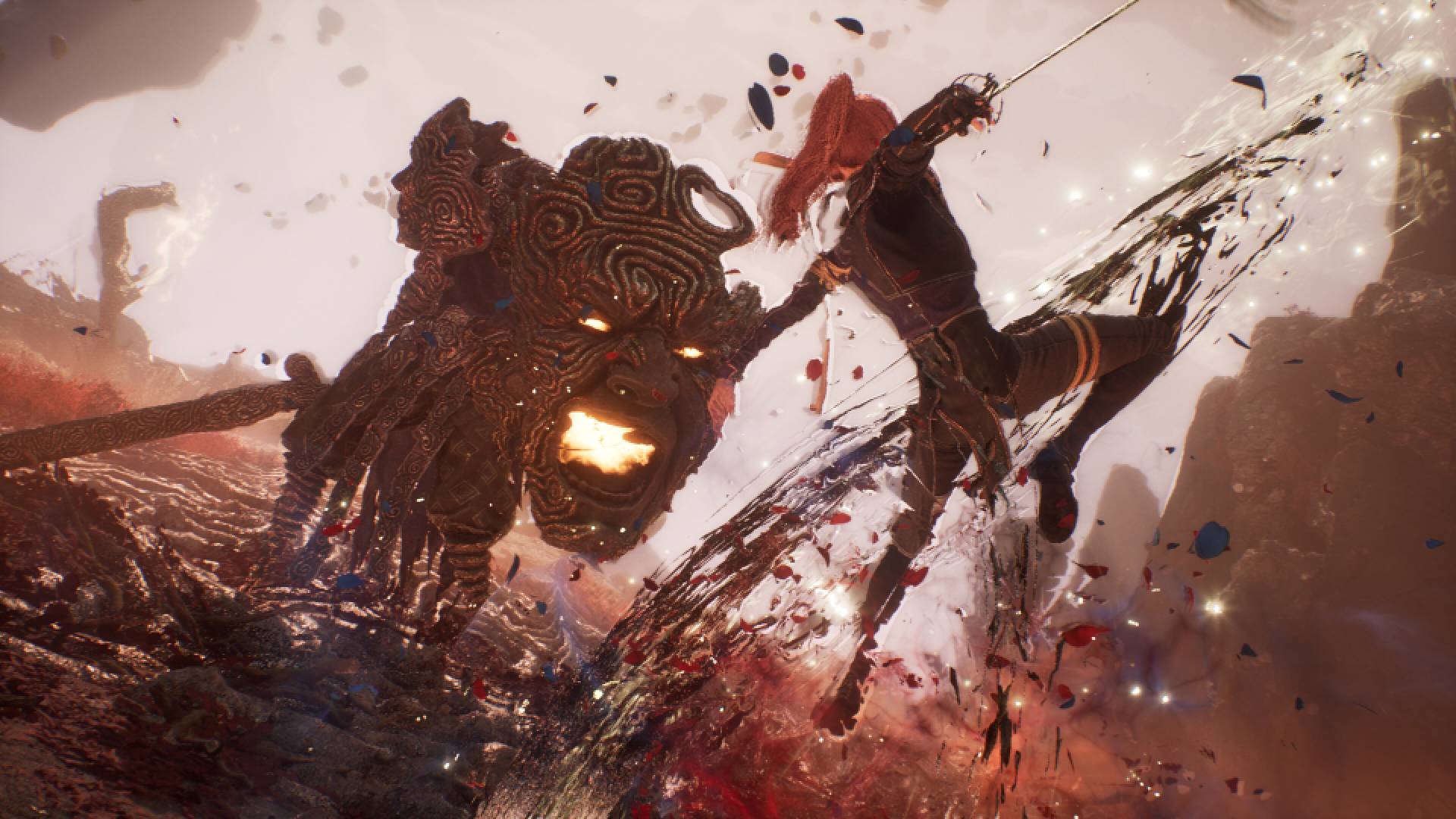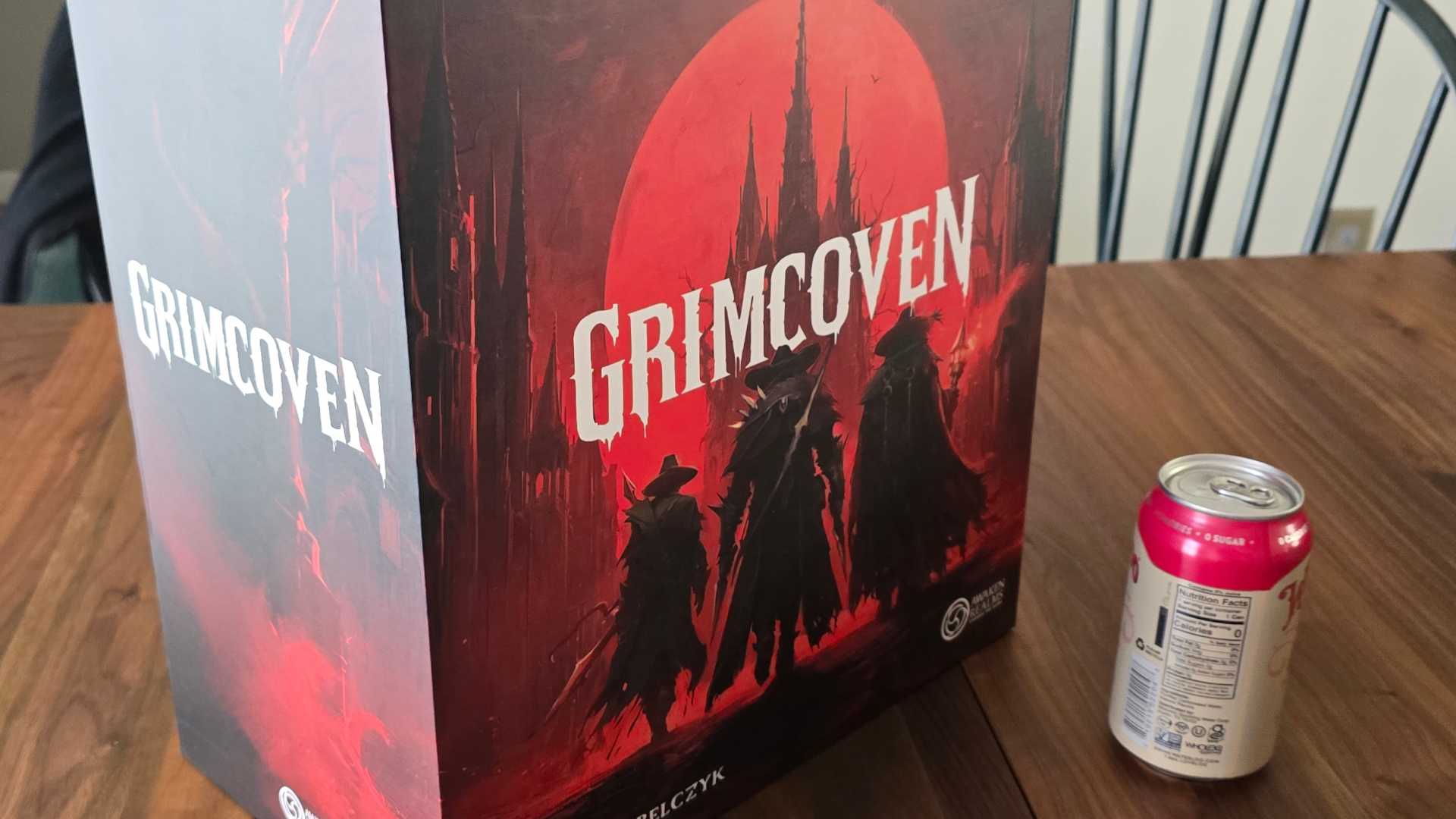Ex Dragon Age writer says Baldur's Gate 3 and Clair Obscur: Expedition 33 prove publishers wrong on how successful RPGs can be "when the game is good," and "what's possible when a game is given time to cook"
"They appeal very, very strongly to that one audience, but it's so strong that it ends up growing that audience," says David Gaider

Weekly digests, tales from the communities you love, and more
You are now subscribed
Your newsletter sign-up was successful
Want to add more newsletters?

Every Friday
GamesRadar+
Your weekly update on everything you could ever want to know about the games you already love, games we know you're going to love in the near future, and tales from the communities that surround them.

Every Thursday
GTA 6 O'clock
Our special GTA 6 newsletter, with breaking news, insider info, and rumor analysis from the award-winning GTA 6 O'clock experts.

Every Friday
Knowledge
From the creators of Edge: A weekly videogame industry newsletter with analysis from expert writers, guidance from professionals, and insight into what's on the horizon.

Every Thursday
The Setup
Hardware nerds unite, sign up to our free tech newsletter for a weekly digest of the hottest new tech, the latest gadgets on the test bench, and much more.

Every Wednesday
Switch 2 Spotlight
Sign up to our new Switch 2 newsletter, where we bring you the latest talking points on Nintendo's new console each week, bring you up to date on the news, and recommend what games to play.

Every Saturday
The Watchlist
Subscribe for a weekly digest of the movie and TV news that matters, direct to your inbox. From first-look trailers, interviews, reviews and explainers, we've got you covered.

Once a month
SFX
Get sneak previews, exclusive competitions and details of special events each month!
A few weeks ago, former Dragon Age narrative lead David Gaider praised Clair Obscur: Expedition 33 for being to JRPGs "kind of what Baldur's Gate 3 was to CRPGs." He was surprised by how much coverage and discussion his comment sparked – 'notable dev with interesting thoughts on topical game' is often newsworthy – and by how some people interpreted his opinion.
Curious about his thoughts on the genre, especially as he dreams about his own RPG while his new studio Summerfall finishes the promising, RPG-tinged roguelike Malys, I reached out to talk through this in more depth.
It's not that Gaider was dissing or overlooking JRPGs. "A number of people were like, 'there's been a lot of really good JRPGs. You're coming across as a guy who hasn't played JRPGs in 20 years,'" he said of some responses. "No, I have, and I think they're pretty consistent with what they do. There's been some really good ones, like Metaphor [ReFantazio] is one recent example of a really good JRPG."
What Gaider meant, he explained to me, is that Baldur's Gate 3 and Expedition 33 are "both kind of love letters to their genre that allow what they've created to translate to a larger audience than what that genre normally hits."
We talked about how, at peak hype, Baldur's Gate 3 was the game you had to play even among people and communities who may normally never touch a dense, D&D CRPG. It was just that good; even if it wasn't your thing, it could convert you. With sterling, realistic presentation and distinct action chops, you can argue Expedition 33 has had a similar effect for turn-based games. It's the new hotness, even outside JRPG devotees.

"The sales for BG3 were amazing," Gaider continues, "and kind of make a lie out of – I remember when I was at EA, there was a lot of investigation into how large is the RPG audience, and how large is the action audience, and so forth. And they would have an estimate and they'd say it caps out, oh, the RPG audience caps out at about 5 million. But that doesn't seem to be true when the game is good."
I don't know how EA currently views the RPG market, but earlier this year the publisher did notably say that Dragon Age: The Veilguard "did not resonate with a broad enough audience." This outlook certainly fits with Gaider's assessment of EA's assessment.
Weekly digests, tales from the communities you love, and more
"I think there's such a thing as expanding the audience, as opposed to treating the audience as this finite number of people, right?" Gaider continues. "And I think that's what Expedition 33 really does. I think it manages to take the elements of JRPGs – and I don't think it's doing a lot of new things, honestly. It's taking a number of more recent trends and kind of bundling them up in an interesting way that I think makes it very accessible to people who normally wouldn't play JRPGs. And does that with fully mocapped animations that are really high quality."
Beyond the potential reach of a really good RPG, Gaider reckons these two games also demonstrate once more, louder for the people in the back, "what's possible when a game is given time to cook, when it's allowed to develop. BG3 was pretty exceptional in that it had a very long period on Early Access, a couple of years, I think, where it was able to respond to player feedback and develop past the point where, if they were under a publisher, they probably would have been forced out the door and it would have been a much different experience."

Expedition 33 director Guillaume Broche previously said that making a game like this in a AAA, publisher-watched environment could have taken ages just to get it greenlit, assuming it would be possible at all.
Gaider agreed it would probably have a lot of red tape, but also notes it's "easy, I think, to lay all the fault at the door of publishers. I mean, they're operating under a lot of financial pressure as well, a lot of internal pressure. Numbers always have to go up, which, I mean, I get that. That's not ideal, but that's just the reality that they live in."
However, that kind of environment can absolutely squeeze unique, memorable magic out of games in pursuit of the biggest demographic possible.
"When you have a publisher hanging over your head, they're looking for very specific things," Gaider says. "They want mass appeal. They don't care about appealing very, very strongly to a specific audience. They want mass appeal. They want to feel comfortable, de-risk it by imagining how the appeal translates to many different kinds of audiences, which I think often kind of ends up diluting the very specific things a game can do. Like I said, what BG3 did and what Expedition does is, yes, they appeal very, very strongly to that one audience, but it's so strong that it ends up growing that audience. And I think that's the part where publishers could really struggle."

Austin has been a game journalist for 12 years, having freelanced for the likes of PC Gamer, Eurogamer, IGN, Sports Illustrated, and more while finishing his journalism degree. He's been with GamesRadar+ since 2019. They've yet to realize his position is a cover for his career-spanning Destiny column, and he's kept the ruse going with a lot of news and the occasional feature, all while playing as many roguelikes as possible.
You must confirm your public display name before commenting
Please logout and then login again, you will then be prompted to enter your display name.


